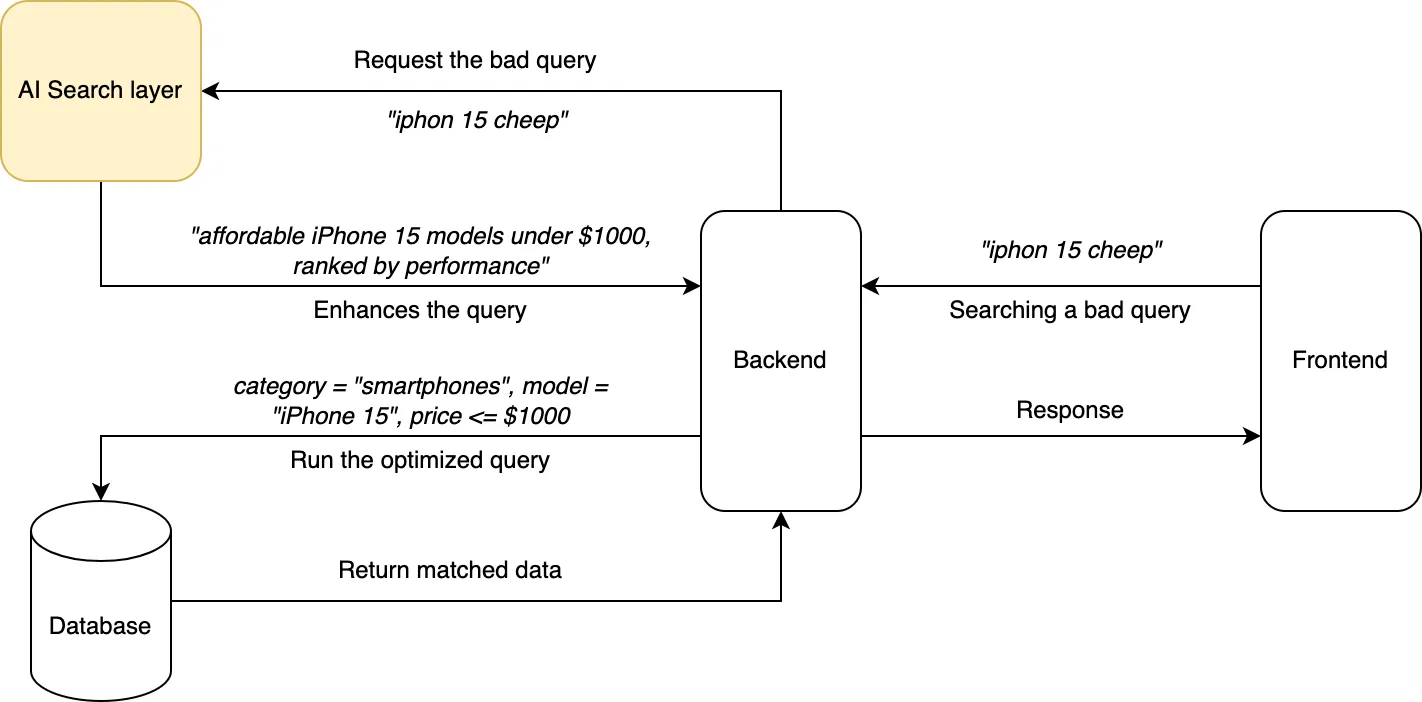
1. What is AI Search?
Unlike traditional keyword-based search engines, AI Search refers to the use of AI techniques to enhance search functionality, making it more intelligent, accurate, and context-aware. AI-powered search systems leverage Natural Language Processing (NLP), Machine Learning (ML), and Deep Learning (DL) to understand and provide personalized responses.
2. How AI Search works ?
2.1. Query understanding
When a user enters a query, AI first processes it using NPL to understand intent rather than just matching keywords. E.g. Searching system
- Query: “best laptop for programming under $2000”.
- Process:
– Recognizes “best” as a ranking preference.
– Understands “laptop for programming” refers to developer-friendly specifications (RAM, CPU,…).
– Identifies “under $2000” as a price filter.
- Result: Searching system provides a list of laptops with specs suitable for programmers, not just random laptops under $2000.
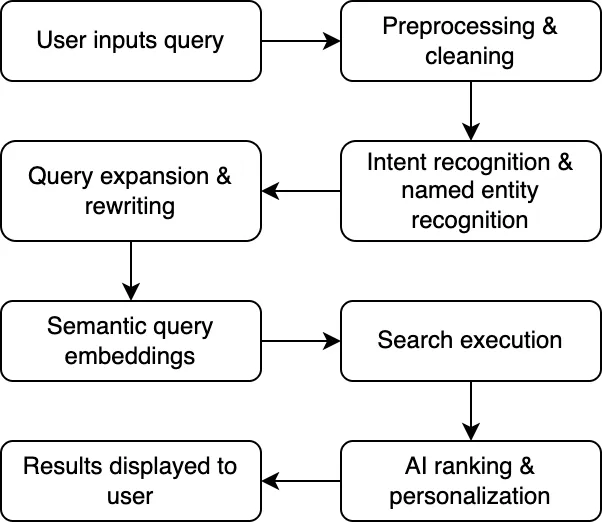
2.2. Semantic search
Semantic search enables AI to understand the meaning behind words, even if they aren’t an exact match. E.g. E-commerce search
- Query: “running shoes with good ankle support”.
- Process:
– Recognizes “running shoes” as footwear category.
– Understands “good ankle support” as an important feature.
– AI expands results to include products with “top running shoes”, even if “ankle support” isn’t in the product title.
- Result: AI displays the best-matching running shoes, even if exact keywords don’t match.
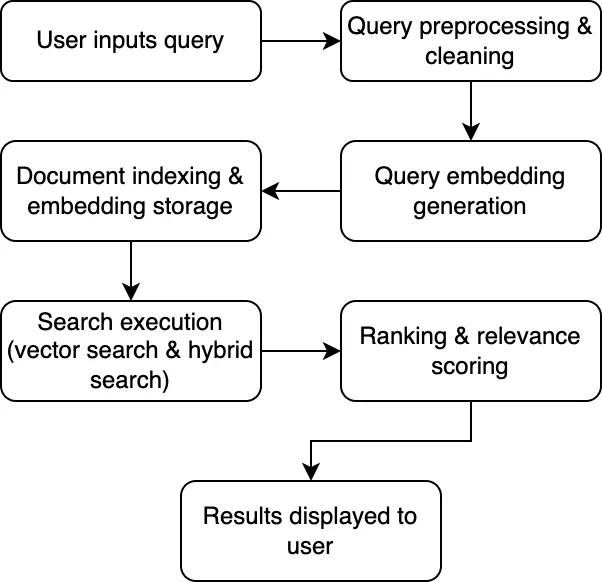
2.3. Personalized search
AI tailors results based on user behavior, preferences, and past searches. E.g. YouTube AI Search
- Query: “top AI videos”.
- Process:
– Recognizes that the user frequently watches tech-related content.
– Prioritizes AI videos that the user might like.
- Result: The search returns AI videos relevant to the user, not just trending videos.
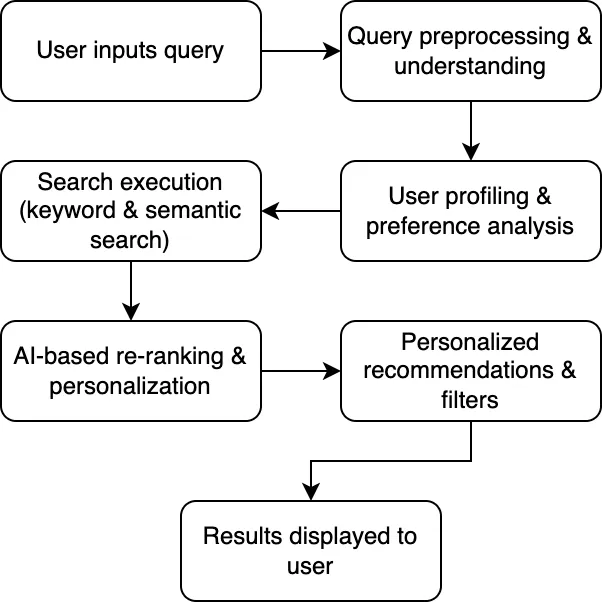
2.4. AI-Powered ranking
Search engines use machine learning models to rank search results based on various factors. E.g. Search algorithm
- Query: “how to improve website SEO?”.
- Process: AI evaluates hundreds of ranking factors, such as
– Domain authority, reputation of the website.
– Content relevance.
– User engagement…
- Result: High quality articles on SEO appear at the top of search results.
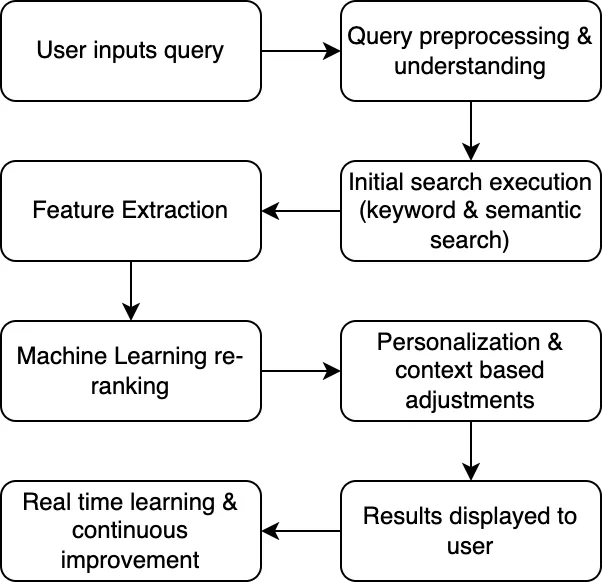
2.5. AI-Driven recommendations
AI predicts what users might search for next, making the experience faster. E.g. Search auto suggestions
- Query: “best smartphones for”.
- Process: AI analyzes popular searches and personal preferences.
- Result: It returns
– “best smartphones for pictures”.
– “best smartphones for videos”…
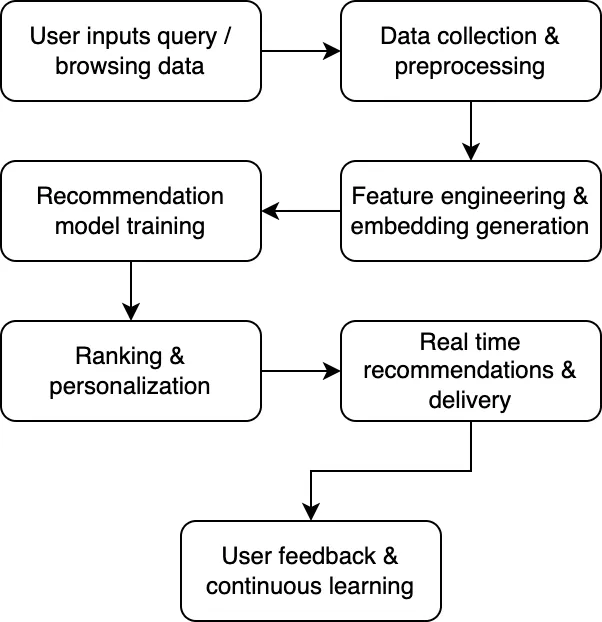
3. Popular tools & frameworks for AI-Powered Search
- Search engines (traditional & hybrid search): Elasticsearch, OpenSearch,…
- Vector search & AI Powered semantic search: FAISS, Pinecone, Weaviate,…
- NLP & Query understanding (preprocessing, query expansion, NER): spaCy, NLTK,…
- Machine Learning based ranking & AI Search ranking: XGBoost, LightGBM, TensorFlow Recommenders (TFRS),…
4. Popular AI API services
- Algolia AI Search: Algolia offers AI-powered search capabilities, providing relevant results from your search index based on defined business outcomes.
- Google Cloud AI APIs: Google Cloud provides a suite of AI APIs, including natural language processing and machine learning tools, to enhance search functionalities.
- Azure Cognitive Search: Microsoft’s Azure Cognitive Search is a cloud-based service offering indexing and querying capabilities, enriched with AI features like natural language processing and image recognition.
- OpenAI API: OpenAI provides APIs that can be utilized for various AI applications, including enhancing search functionalities with advanced language models.
5. Architecture
AI Search is a new intelligent layer that can be added on top of your existing system.
5.1. Traditional architecture

5.2. AI Search architecture
